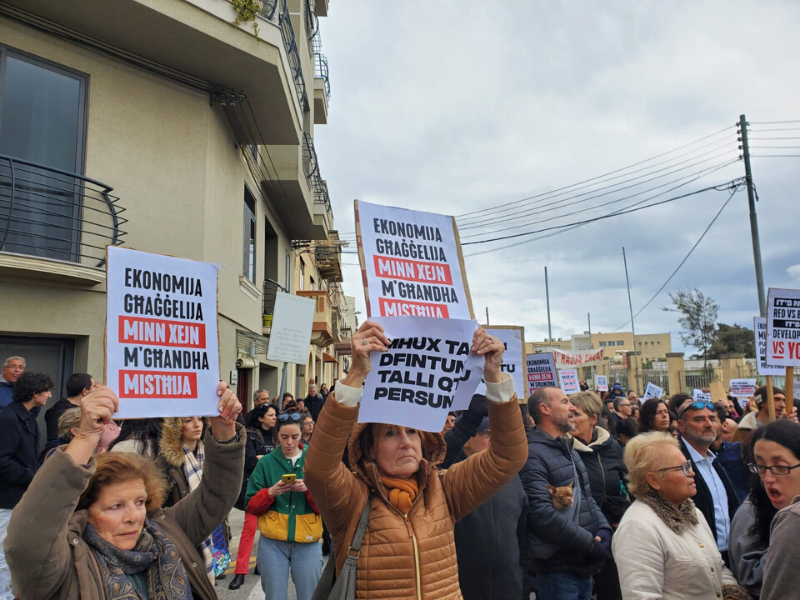Malta is suffering from a “distortion of democracy” whereby shadowy constituencies fund political parties in return for favourable treatment such as direct orders and tenders. It also leads to “cosy relationships” with regulators and authorities resulting in a de facto state of impunity.
This was the message from civil society organisation Moviment Graffitti in their written submission to the public inquiry into the assassination of Caruana Galizia.
Among their demands, recommendations, and observations, they called for a new system where parties are only able to raise money via membership dues that will then be multiplied by the State.
“There should be no donations in cash, in-kind, or the form of loans”, they said, adding that an independent body should be set up by the courts to audit.
“Only in this way can parties achieve independence from those with the means to exert undue influence,” such as big businesses, developers, and construction magnates.
As long as politics is captured by private corporate interests, politicians can never guarantee the safety of the citizens they serve, they said.
The 26-page submission writes that Caruana Galizia’s murder was “inevitable” and that “the State can never prevent criminal acts from taking place when those criminals are directly funding the activities of political parties.”
They were clear that “the State was not only aware of the threat on Daphne Caruana Galizia’s life, but was directly implicated in its conception, planning, and execution.
Movement Graffitti painted a picture whereby, in Malta, money is power and it results in letting people think they can get away with murder, without repercussions. Members of the public, journalists like Daphne Caruana Galizia and civil society, are just “collateral damage”.
The government has “ long accommodated the interests of big business in the hopes of keeping the economy running, whether it was to the detriment of Daphne Caruana Galizia, Miriam Pace, or all those in between,” they wrote.
It’s evident, they said, that the “State war” against Caruana Galizia was a concerted effort to halt independent investigations into state corruption and wrongdoing.
A “vast amount of resources dedicated to personally harassing her” included the significant number of libel suits from politicians who have “since been linked to corruption”, as well as failing to protect her while she was still alive.
Apart from commenting on Caruana Galizia’s assassination, the group provides a range of insights into the construction industry, corrupt financial services operators, white collar crime, the Panama Papers, systemic inequality, and the stonewalling of journalists or those looking for answers.
It also discussed the environment and the phenomenon of public-private partnerships that are of detriment to taxpayers.
Many of these are topics that Caruana Galizia investigated and drew attention to while she was alive. Some are also indicative of the climate that was cultivated that led to a situation where a journalist could be assassinated with impunity.
On the topic of the environment, they note that the current situation in Malta shows that the State has failed to avoid the development of a de facto state of impunity.
They accused the government of wilfully manipulating legal frameworks, failing to adhere to its own standards, and exercising negligence in terms of enforcement.
Well-documented ties with favoured construction companies have facilitated a culture where lives have been lost on construction sites. They mentioned six such deaths between 2018 and 2019, and the fact that the National Audit Office said construction projects pose a serious hazard to workers and are “going under the safety watchdog’s radar”.
On the topic of white collar crime, Moviment Graffitti provided several examples of scandals and the impunity that typically follows.
“We believe the lack of police action against individuals/companies mentioned in Panama Papers, together with (Manfred) Galdes’ allegations of government interference, are all clear evidence of the de facto state of impunity that was being fostered by the government with regards to white collar crime.”
They called out the lack of action by regulators such as the Malta Financial Services Authority and the Accountancy Board who rushed to “wash their hands of responsibility” for such crimes.
In their conclusion, the organisation says that at no point since Malta gained its independence, has the State had any effective criminal law provisions in place to prevent the development of a state of impunity.
“If it did, Daphne Caruana Galiza would still be with us today.”












